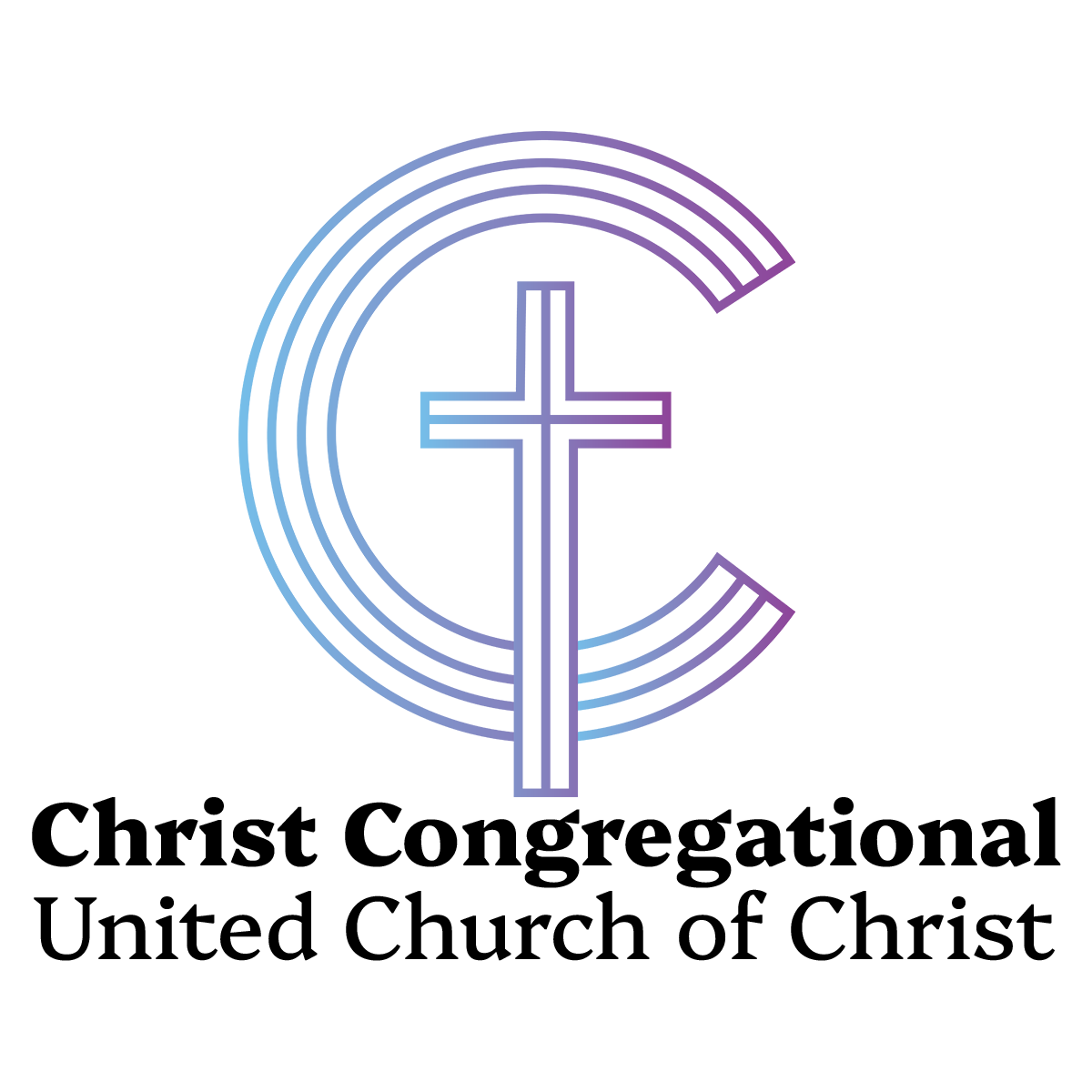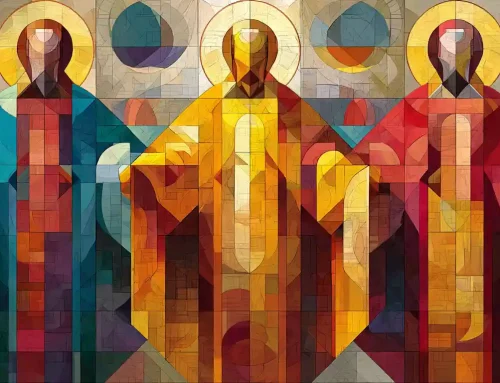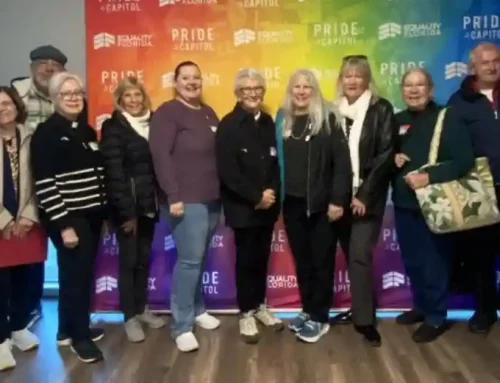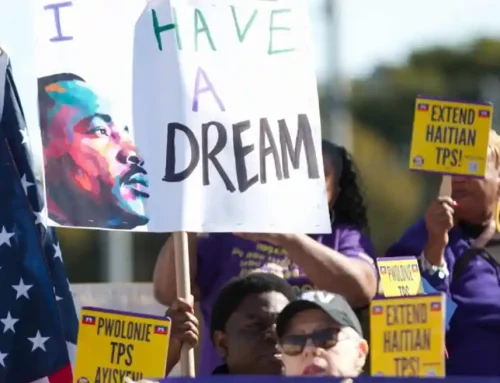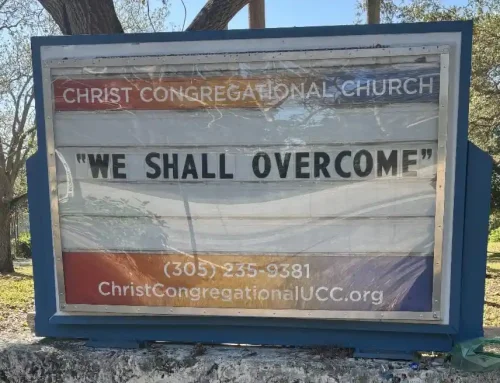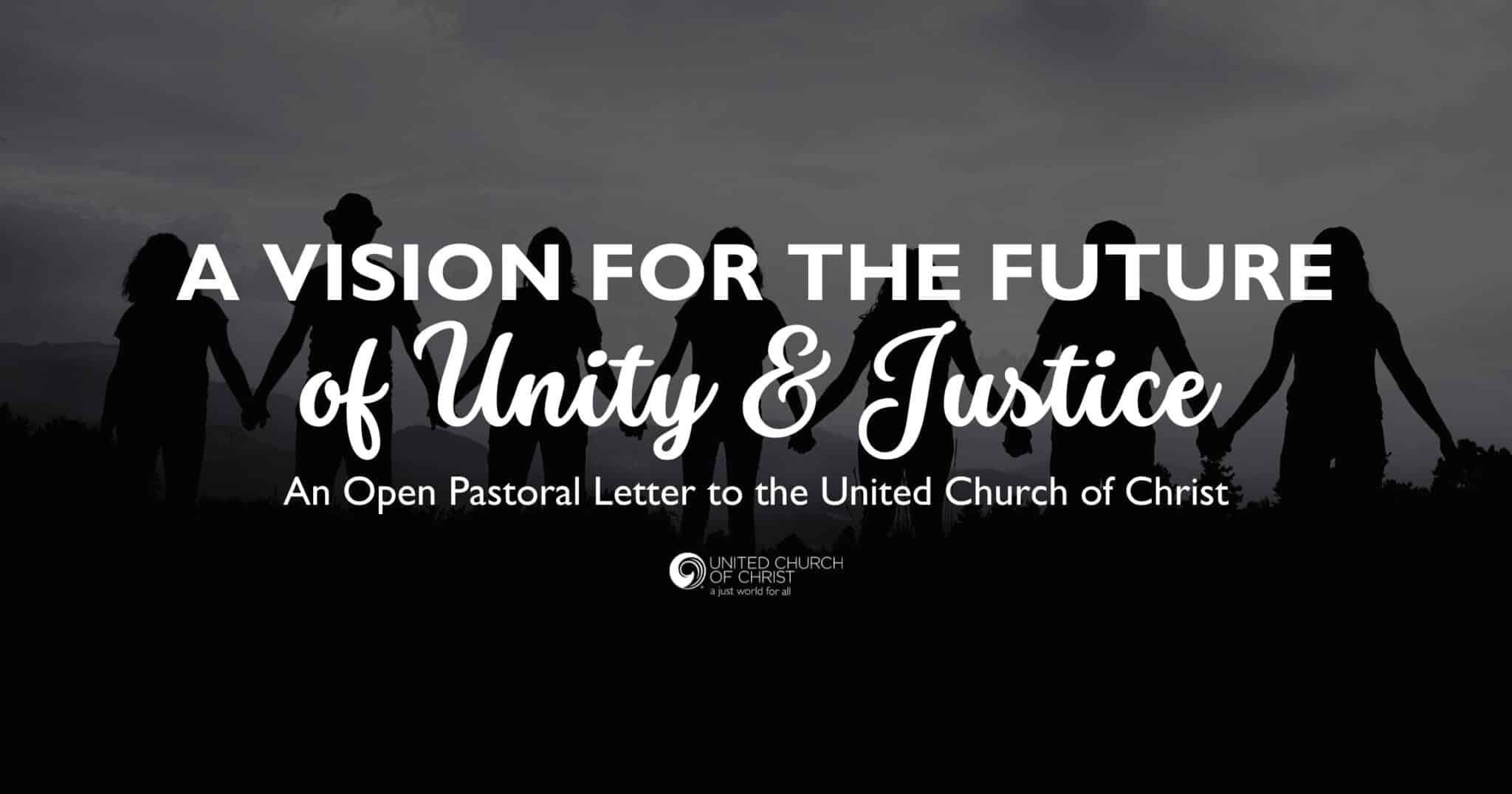
A pastoral letter to the United Church of Christ on unity and justice
Leaders of the United Church of Christ have written the following pastoral letter to the UCC community, offering reflection and an invitation on what it means to faithfully be Christ’s church in the present moment. The pastoral letter is also available to download here.
Peace I leave with you; my peace I give to you. I do not give to you as the world gives. Do not let your hearts be troubled, and do not let them be afraid (John 14:27).
Dear beloved United Church of Christ community,
During this blessed Advent season, we enter a time of hopeful anticipation. We wait patiently for what God will newly reveal to us, and trust that God is indeed birthing bold possibilities amid our uncertainty and fears, as well as our hopes and joys.
It is appropriate in this season for us to reflect on how God might be calling us in fresh ways to be the “united and uniting” church we profess as our identity in the United Church of Christ. We offer this letter as our invitation to prayerfully consider how we can most faithfully be Christ’s church in this moment, with the joyful confidence that God is indeed doing a new thing among us.
The Great Divide
United in Spirit and inspired by God’s grace, we welcome all, love all, and seek justice for all.[1]
In the aftermath of the United States presidential election and the days of campaigning leading up to the election of the 47th president of the United States, the political divide in the country was evident. This political divide over critical social issues is not new; however, the polarization on the issues has created a chasm where there once was an aisle. More critically, this division is evident in the church, where diversity is broad and runs deep. This has always been so in the United Church of Christ, across the mainline churches and in the church at large. There is an inherent diversity in the church which includes political diversity.
The political divide poses a threat to the unity of the church. While there is value held in identifying that “unity does not mean uniformity,” the political narratives of the day are quite different from those seen in the recent past, particularly given the rise of white Christian nationalism, a religious ideology and political movement that uses Christianity as a foundation for a hate-filled xenophobic, misogynistic, homophobic, and racist rhetoric.
White Christian nationalism itself is not new and is based on white supremacy. “The Christian nationalist movement is largely white, reflecting the long entanglement of nationalism and racism that is our collective inheritance since the earliest days of America’s colonial settlement. In white nationalism this history is sanitized, removing the sins of genocide, slavery, Jim Crow laws, and all the many ways in which racism has saturated and sustained our society, thereby removing any felt need for repentance or repair.”[2] Addressing this religious ideology is a priority.
The ministry of Jesus was one that prioritized those on the margins of society. His ministry was bold and prophetic, speaking to and against the religious norms of his day, which perpetuated injustices and oppressed “the least of these.” Jesus brought a message of love. When asked by his disciples about the greatest commandment, Jesus responded: “‘You shall love the Lord your God with all your heart and with all your soul and with all your mind.’ This is the greatest and first commandment. And a second is like it: ‘You shall love your neighbor as yourself’” (Matthew 22:37b-39). This is love which compels us to action.
The call to love our neighbor as ourselves begins in loving each other in the church. While not an easy task, the possibilities are yet before us to live beyond the many issues which are evident and to love each other in all the rich diversity of humanity and the church. The politics of our day ought not to divide us in ways that create harm, foster hate, and hinder the ability of others to love and serve God. The love of God has the power to transcend and transform the frailties and fragilities of our human existence.
The call to love our neighbor as ourselves extends beyond the walls of the church, into our communities, and into the world. Our action on behalf of those in our communities is based on love. Jesus called us to love across the great divide that is our differences. This call remains urgent today, as the church is called to be salt and light in the world. In loving ourselves and our neighbor, we must give voice to the truths of our day: 1. White nationalism is not Christian, nor is it patriotic; 2. God calls us to love all people; and 3. God is still God of the oppressed.
Christian Unity
To love God with all our heart, mind, soul, and strength and our neighbor as ourselves.[3]
The ecumenical community recognizes that there are church-dividing issues – differences of doctrine that cannot be resolved over time. Even in those cases, churches have been able to reconcile differences. Then, there are the times when our doctrinal issues cause the breaches in relationship that split communities of Christians, causing pain, grief and loss in the body of Christ. Our political narratives should not be church-dividing.
In the days before his death, Jesus taught the disciples and prayed for them. The motto of the United Church of Christ, “that they may all be one” (John 17:21), is a part of a prayer Jesus offered for his disciples. He prayed: “I ask not only on behalf of these but also on behalf of those who believe in me through their word” (John 17:20). This earnest prayer was for the disciples who Jesus knew, and for those who would believe in him through the disciples. Jesus prayed for the unity of his followers.
The history of the United Church of Christ is based in unity. The forming of the denomination in 1957 was a sign of the visible unity of the church and pointed to the possibilities for the church, as the one body of Christ. The formation of the UCC brought together denominational streams which were willing to forego their own denominational identities to live into the unity of the church. The formation of the UCC brought together people with different ideas about the church. Those differences were theological and political. There were racial and ethnic differences, too. There were also language and economic differences. Yet, the desire to be the church together far outweighed the differences that were perceived.
The unity of the church continues to be a priority for Christians around the world. Here in the United States, we continue to hold before us Jesus’ prayer. In the United Church of Christ, we name the diversity among us as an important part of who we are as Christians. This time of division and the presence of Christian nationalism revisits a painful history and past in the United States when the church was complicit in its silence, an issue which was addressed by the Rev. Dr. Martin Luther King, Jr. in his Letter from a Birmingham Jail which was written in April 1963. The letter was a prophetic call to the leadership of the church to be the church on the side of the oppressed.
Justice
United in Christ’s love, a just world for all.[4]
The perpetuation of injustice is challenging to the well-being of all creation. The quest for a just world for all is yet before us. Martin Luther King, Jr., reminded us that “the arc of the moral universe is long, but it bends toward justice.” The church is called to participate in seeking justice in the world. While there are times when the church has been silent, the church has also followed the teachings of Jesus and has been on the side of the oppressed, advocating for justice.
The UCC and its predecessor bodies have a history of being on the forefront of justice:
We remember that our ancestors’ ministries during the 19th century included the abolition movement, the struggle for women’s suffrage, and the creation of social justice organizations and churches that assisted immigrants new to our shores. In the early 20th century, the Social Gospel movement emboldened our forebears to denounce economic injustice and express their solidarity with immigrants who endured pain and hopelessness in urban tenement communities.
During the Second World War some of our forebears spoke out against the internment of Japanese citizens, and some congregations helped to sustain their Christian sisters and brothers during their forced relocation. In the 1950s we spoke up for Native Americans whose land was once again being stolen in order to build a dam that would devastate their communal life.
In the 1960s our church provided sustained support for civil rights organizations like the Southern Christian Leadership Conference and participated fully in the racial justice work of the National Council of Churches. In the 1970s we stood with migrant farm workers demanding just wages and dignified living conditions. We are, indeed, surrounded by a great cloud of witnesses whose faith and witness can embolden ours.[5]
Our history will always be with us, as will the witness of those who came before us. Ours is the task of attending to what lies ahead for the church and for the world. The journey requires that our unity and quest for justice be accompanied by civil discourse and the commitment to be engaged through hard conversations. This engagement is built on the call to love as we move forward together. The witness of the church of today will create the history that will be told in a future beyond these days. “Thus says the Lord of hosts: Render true judgments, show kindness and mercy to one another; do not oppress the widow, the orphan, the alien, or the poor; and do not devise evil in your hearts against one another” (Zechariah 7:9-10).
A Vision for the Future
…that they may all be one (John 17:21)
We are a “big tent” in the UCC. This big tent is identified by the multiplicity of ways members of the UCC reflect the categories of diversity present in the United States and in the world. We are ecumenical, coming from disparate places and experiences with roots well beyond the identified streams in the UCC’s history. We are representative of language, racial/ethnic, gender, theological, and political diversities, to name a few areas of our diverse landscape. We are reflective of the beloved community, one where love lives. Our commitment to live this diversity is a commitment to live into the radical love Jesus taught. We can love one another beyond the expectations and conditioning of this world in which we live where diversity is the source of division.
We will rise to the challenges of these unfolding days as we have in the past: speaking truth to power, attending to the call to do justice, ensuring the hungry are fed and the vulnerable are protected. We will rise to the challenge of hearing and learning from each other as we commit to being the church for today. We will rise to the challenge of loving beyond our human capacity, a possibility with the power of the Holy Spirit. Ours is the ministry of care and compassion, a call to attend to the moments of change life presents, and to attend to our communal needs.
The prophet Micah provided words of hope to a people in despair: “But as for me, I will look to the Lord; I will wait for the God of my salvation; my God will hear me” (Micah 7:7). We wait in hope, believing that God is ever-present with us and will keep us through this moment, providing peace and comfort. God will also be with us in the days that are ahead, granting us strength, courage, and wisdom. We wait in hope, believing that change is possible as we seek a just world for all.
As we wait:
- We pray.
- We care for those in need.
- We advocate for change.
- We speak truth to power.
God of hope and love, you are ever-present with us. We wait patiently for you, knowing that you hear our prayers. The call to do justice is on-going. As governments come and go, we are called to bring healing and care to those in need. This is such a moment. A time when there will be the hungry to feed, the homeless to house, and the widows and orphans who will need our care. This is a time when we will continue to honor the inherent dignity and worth of each of your children. This is a time when the church will be prophetic, calling for truth and for change. Provide your church and all who lead and minister within it hope and healing for the living of these days. Amen.
Rev. Dr. Karen Georgia A. Thompson
General Minister and President
Rev. Shari Prestemon
Acting Associate General Minister
Rev. Dr. Bentley DeBardelaben-Phillips
Transitional Executive Minister
Council of Conference Ministers
California, Nevada Northern
Rev. Davena Jones
California, Nevada Southern
Rev. Rachael Pryor
Calvin Synod Conference
Rt. Rev. Csaba Krasznai
Central Atlantic
Rev. Freeman Palmer
Central Pacific
Rev. John Tyler Connoley
Florida
Rev. Nayiri Karjian, Interim Conference Minister
Hawaii
Rev. David Popham
Heartland
Rev. Dr. David Long-Higgins
Illinois
Rev. Dr. Terrill Murff, Interim Conference Minister
Illinois South
Rev. Shana Johnson
Indiana-Kentucky
Rev. Dr. Chad Abbott
Iowa
Rev. Dr. Phil Hart, Intentional Interim Executive Conference Minister
Kansas-Oklahoma
Rev. Lorraine Ceniceros
Maine
Rev. Dr. Marisa Laviola
Michigan
Rev. Dr. Lillian Daniel
Minnesota
Kelly Gallagher, Associate Conference Minster
Missouri Mid-South
Rev. Mary Nelson, Transitional Conference Minister
Montana-Northern Wyoming
Rev. Tony Clark
Nebraska
Rev. Dr. Phil Hart, Intentional Interim Executive Conference Minister
New Hampshire
Rev. Gordon Rankin
New York
Rev. Marsha Williams, Transitional Conference Minister
Northern Plains
Rev. Deborah Blood, Transitional Conference Minister
Pacific Northwest
Rev. Phil Hodson, Designated Conference Minister
Penn Central
Rev. Dr. Carrie Call
Penn Northeast
Rev. Dr. Bonnie Bates
Penn West
Rev. David Ackerman
Pennsylvania Southeast
Rev. William P. Worley
Rocky Mountain
Rev. Erin Gilmore, Acting Conference Minister
South Central
Rev. Molly Carlson, Interim Conference Minister
South Dakota
Rev. Dr. Phil Hart, Intentional Interim Executive Conference Minister
Southeast
Rev. Kim Wood
Southern
Rev. Dr. Edward S. Davis, Conference Minister
Southern New England
Rev. Darrell Goodwin, Executive Conference Minister
Southwest
Rev. Dr. Toni Hawkins
Vermont
Rev. Lynn Bujnak
Wisconsin
Rev. Franz S. Rigert
[1] UCC Mission Statement, https://www.ucc.org/mission/
[2] https://nationalcouncilofchurches.us/common-witness-ncc/the-dangers-of-christian-nationalism-in-the-united-states-a-policy-statement-of-the-national-council-of-churches/
[3] UCC Purpose Statement, https://www.ucc.org/mission/
[4] UCC Vision Statement, https://www.ucc.org/mission/
[5] UCC Pastoral Letter on Racism (2008)
Share This Story, Choose Your Platform!
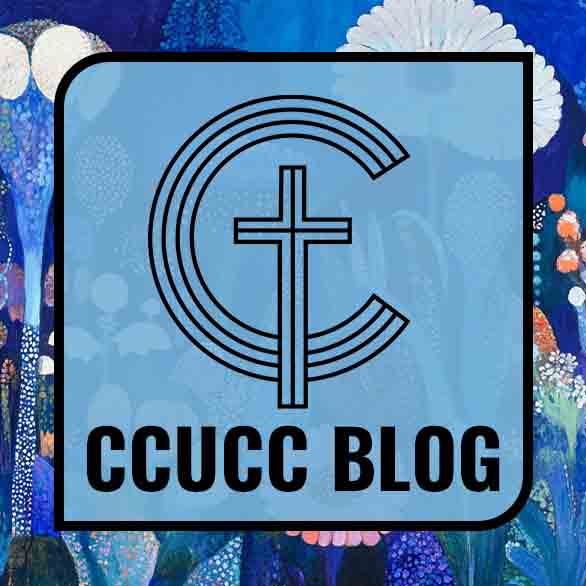
Sign up with your email to always get the Good News from CCUCC!
